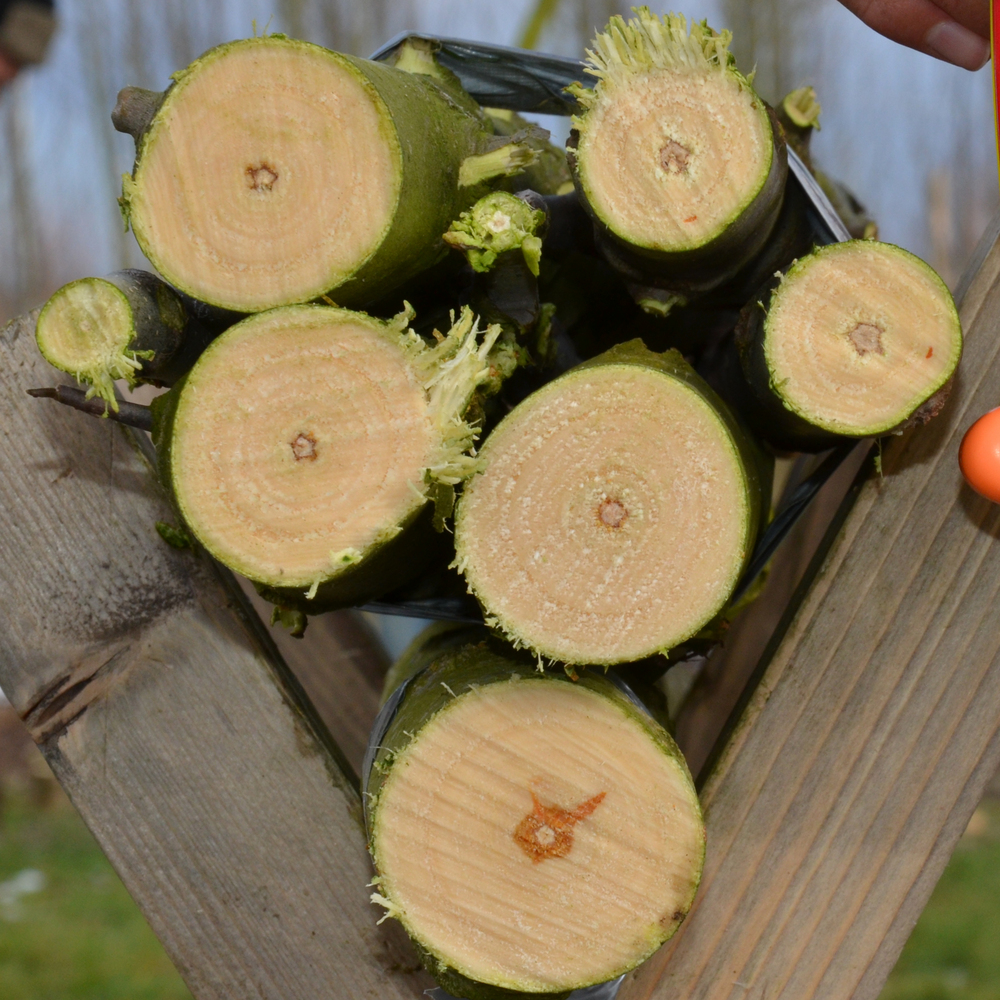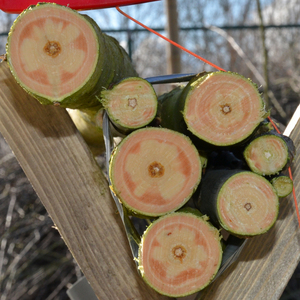Field trial of lignin modified poplars shows potential



VIB
December 31, 2013
BY VIB
The results of a field trial with genetically modified poplar trees in Zwijnaarde, Belgium, shows that the wood of lignin modified poplar trees can be converted into sugars in a more efficient way. These sugars can serve as the starting material for producing bio-based products like bio-plastics and ethanol.
The results of the field trial have been published in a scientific article in which the results of a field trial of French colleagues of the INRA institute in Orleans have been incorporated. The article has been published in the online edition of PNAS of 30 December 2013.
The field trial however also showed that the suppression of the lignin biosynthesis in the trees is variable. In some trees the suppression is stronger than in other trees which is visible through a more pronounced red coloration of the wood beneath the bark. Some branches show almost no red coloration, others a spotty pattern and again other a full red coloration. The branches with the highest red coloration produce 160 percent more ethanol. On the whole the ethanol yield per gram of wood is 20 percent higher. This in itself is positive, except for the fact that the modified trees appear to grow somewhat less rapid than non-modified poplar trees.
“The branches with the highest red coloration give us hope that we will be able to achieve our goal in the future. The biosynthesis of lignin is very complex. We will now search for modifications that provide a strong and uniform suppression of the lignin biosynthesis. Because in the meantime we are also getting a pretty good idea of what causes the growth retardation, we immediately will start to work on poplars that grow normal, but still have a stable suppression of the lignin production. It must be possible to improve the ethanol yield per tree with 50 to 100pecent,” said Wout Boerjan, a professor at VIB Department of Plant Systems Biology.
In the poplar trees in the field trial in Zwijnaarde in Belgium the so-called ‘CCR-enzyme’ is suppressed. This enzyme plays a key role in the biosynthesis of lignin, but its suppression apparently does not lead to a uniform lowering of the amount of lignin. In a new field trial that VIB will start in Wetteren, Belgium, in 2014, trees will be tested in which another enzyme has been suppressed: the ‘CAD-enzyme.’ In these trees also a more modern way of suppression of the enzyme has been used. This new trial therefore fits into the search for modifications that provide a more uniform suppression of the lignin biosynthesis.
Advertisement
Advertisement
Advertisement
Advertisement
Related Stories
The USDA’s National Agricultural Statistics Service on June 30 released its annual Acreage report, estimating that 83.4 million acres of soybeans have been planted in the U.S. this year, down 4% when compared to 2024.
SAF Magazine and the Commercial Aviation Alternative Fuels Initiative announced the preliminary agenda for the North American SAF Conference and Expo, being held Sept. 22-24 at the Minneapolis Convention Center in Minneapolis, Minnesota.
Scientists at ORNL have developed a first-ever method of detecting ribonucleic acid, or RNA, inside plant cells using a technique that results in a visible fluorescent signal. The technology could help develop hardier bioenergy and food crops.
The 2025 International Fuel Ethanol Workshop & Expo, held in Omaha, Nebraska, concluded with record-breaking participation and industry engagement, reinforcing its role as the largest and most influential gathering in the global ethanol sector.
TotalEnergies and Quatra, the European market leader in the collection and recycling of used cooking oil, have signed a 15-year agreement beginning in 2026, for the supply of 60,000 tons a year of European used cooking oil.
Upcoming Events










